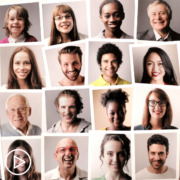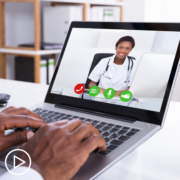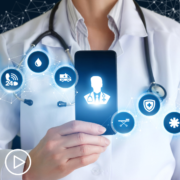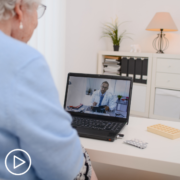What Subset of CLL Patients Should Utilize Telemedicine?
What Subset of CLL Patients Should Utilize Telemedicine? from Patient Empowerment Network on Vimeo.
With monitoring of chronic lymphocytic leukemia (CLL), there is a subset of patients that will get the most benefit from telemedicine visits. Learn more about which CLL patients should use telemedicine and which higher risk patients should still visit in-person.
See More From the CLL TelemEDucation Empowerment Resource Center
Related Resources:

|

|

|
Transcript:
Stephanie Chuang:
Can you share the telemedicine platforms that you, in your practice, use and maybe so far, what are some of the best practices observed?
Dr. John Pagel:
Right, and I think that’s probably the biggest key and takeaway that we can talk about here for the audience, is to remember that telemedicine isn’t going to be appropriate for every patient. And for each individual patient, there are times where it certainly would be very appropriate and other times where it might not be. So, you know, of course, people that have active, growing, rapidly progressing disease, we’re not talking about those people, those people need to be seen by their provider, they need, of course, close attention and monitoring. But many, many patients, in fact, the majority of patients with CLL are not in that kind of group.
So we’re talking about people that don’t have high-risk genetic features, in particular, those are things like a deletion of the short arm of chromosome 17, that’s a 17p deletion, or an 11q deletion or a TP53 aberration, those are genetic risks that your doctor will know about with regard to your specific individual CLL. And most people, fortunately don’t have those features and they behave in a very indolent, slow growing, more benign-like fashion, and then those are the people where probably telemedicine would be appropriate for many visits.
I’ll just say, I would suggest that in general, telemedicine shouldn’t be something that you do with every single visit. Every once in a while, you should have that face-to-face, hands-on interaction with your primary provider. But I’ll also remind people that not everyone lives real close to their oncologist or even their CLL expert. So if you’re far away, you can connect not just with your oncologist who takes care of you, but with an expert who might be some distance away, and that’s the beauty I hear about the telemedicine.




